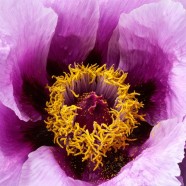
For most women a shocking reality unfolds during the menopausal phase of their lives. What may have previously seemed incomprehensible, women discover they are no longer interested in sex, even those who prior to menopause enjoyed a healthy libido. At some stage in menopause our sex drive drops to an all time low because suddenly we are no longer thinking about sex.
Our libido does start in the mind, yet this lack of desire is prompted by the decline of sex hormones produced by the ovaries. The imbalance of hormones creates disharmony in the body. For this reason it helps to understand the unique effect of hormones and their function within the body – and what to do about it!
Causes
When menopause begins there is a falling off of specific hormones produced by the ovaries; estrogen, progesterone and testosterone. In order to experience sexual pleasure, all of these hormones, individually and collectively play a specific role in the act. Although not so recently the blame was placed on estrogen. We now know that even though levels of estrogen decrease, it is primarily to do with the decline of testosterone and progesterone – two major sex hormones.
Role of Estrogen, Progesterone and Testosterone
Estrogen
Estrogen is a complex hormone consisting of three forms – estrone (E1), estradiol (E2), estriol (E3). Each of these hormones performs a specific duty at various times in a woman’s life. Estradiol is the predominant hormone in women except during menopause when estrone is produced and estriol is the main form for pregnancy. There are many metabolic and structural female characteristics associated with estrogen. A brief example would include the contours of the female body, reduced muscle mass, decelerated height growth, increased metabolism, reproductive system, fluid balance and mental health.
Progesterone
Progesterone balances out estrogen levels controlling estrogen dominance and is significant for the maintenance of the nervous system as well as several other body functions. This hormone is crucial in attempting to conceive and during pregnancy. Looking at progesterone fundamentally illustrates its role as a building block molecule for several other steroid hormones in the ovaries and adrenal glands. For instance, progesterone converts into testosterone, cortisol and some estrogens.
Testosterone
Testosterone is produced naturally by the adrenal glands and ovaries. The importance of testosterone becomes very evident during menopause. This androgen type hormone increases sexual desire and sensitivity, enhances orgasm, increases energy levels, lightens breast tenderness and may stimulate bone formation for the treatment of osteoporosis.
Menopausal Symptoms of Hormone Deficiencies
Estrogen: Symptoms attributing to estrogen deficiency include vaginal dryness, vaginal itching and bleeding, hot flashes and night sweats, disrupted sleep, breast atrophy and urinary problems of urgency and frequency.
Testosterone: Symptoms of testosterone deficiency include fatigue, weaker organisms, decreased libido, less sensitivity of the clitoris area and breast, less sexual enjoyment and depression.
Progesterone: Indicators of progesterone deficiency include diminished libido, mood swings, fatigue, uterine fibroids, ovarian cysts, depression, irritability, water retention, headaches and memory loss.
Symptoms Attributing to Diminished Sexual Desire
Vaginal Dryness
When coping with the symptoms of vaginal dryness, the cliché “no pain no gain’ most defiantly does not apply. To try and couple a joyful experience with the anticipation of pain will simply not marry together. Thinning vaginal walls result from a decline of estrogen which hampers blood flow to the pelvic area. This reduction of blood flow during intercourse also interferes with the much needed lubrication.
Fatigue
An accepted fact is sex requires energy. Fatigue generally stems from two categories; an undernourished body which promotes lower functioning of the glands and organs being called upon at this time; plus the symptoms of menopause such as hot flashes, insomnia and mood swings.
Nourish the Body to Counteract Fatigue and Low Libido
A well nourished body can change moods and raise libido to where once again you may enjoy your body’s feeling sensations. To remedy a tired body through dietary means, focus on whole, unadulterated foods like brown rice, quinoa, whole grains, high quality protein and fats (lean meat, fish, essential fatty acids, egg yolk, nuts and seeds). A staple would include lots of fresh fruits, vegetables and sprouts while minimizing sugar and simple carbs.
Include a wide range of color in your daily diet, keeping in mind below the ground veggies and not just the above ground varieties. Incorporate beets, turnips, radishes, onions, garlic, sweet potatoes and carrots. Go light on white potatoes and other starches or avoid altogether. Next to raw is always best, this way you are ensured the maximum amount of energy from the plant. Juicing is another great suggestion.
Herbal Support
Herbal plants are also very effective in restoring sexual desire by promoting ideal hormonal balance and function. They increase energy and stamina while alleviating menopausal symptoms. A few choices include maca root, ginseng and wild yam. Also address your thyroid gland. It plays a major role in hot flashes, energy and weight gain. The thyroid requires an iodine source daily in order to make thyroid hormone. Sea plants are excellent organic sources of iodine such as kelp, dulse and other seaweeds.
Depression and Insomnia
To combat depressive feelings and sleepless nights, integrate safe herbs and homeopathic remedies into your daily routine or as needed. These suggestions are non addictive and will not interfere with normal sleep patterns when you no longer require them. Choose from any of the following: Herbs; St. John’s Wort, Valerian, Skullcap, Passionflower. Homeopathy; Coffea, Sepia, Passiflora, Nux Vomica, Ignatia, and Chamomilla. To further aid depression, in addition to revamping your diet, avoid sugary foods, chemicals and bad fats found in junk and processed foods.
Self Image
How we view ourselves can be critical at this stage in our lives. Apply only loving and accepting thoughts when you decide to examine your physical self from within or outward appearances. If you have an issue with weight gain, this can be remedied through a healthy weight loss program with appropriate exercise to fit your personal capabilities. Menopause does not have to be a time of endings but of new beginnings. Look at the freedoms this time of life affords you. If your future feels overwhelming, seek out professional help and surround yourself with positive people who make you feel optimistic and vital.
Solutions to Aid Hormone Deficiencies
The first step is a basic screening test, now available to measure your individual hormone levels. This blood test is called FSH, which stands for follicle stimulating hormone. An FSH reading of above 10-12 mlu/ml is an indicator of peri-menopause. Higher levels in the range of 30-40 designate menopause.
Alternative Herbal Remedies
Herbs have addressed women’s specific health challenges for many generations. Some plants are earmarked as hormone regulators and balancers such as maca root, chaste tree berry, black cohosh, wild yam, licorice root, dong quai and milk thistle seed. These herbs balance estrogen and progesterone activity and are rich in phyto-hormones, providing the hormonal precursors needed during menopause. These plants are nourishing to the body and specific glands implicated in boosting the libido.
Bioidentical Hormones
Natural estrogen, progesterone and testosterone in a form referred to as bioidentical are a recent and effective solution for menopausal symptoms. They are not however without risk. Caution is recommended with respect to duration time of intake and certain types of cancer. Talk to your doctor and pharmacist.
As in the case of most health decisions, practical information and knowledge of a women’s life, including medical history and personal preferences must be ascertained before considering a treatment recommendation. Take responsibility and investigate your options before taking advice to determine what best suites your individuality.
Reference:
1. Dennerstein L, Lehert P. Modelling mid-aged women’s sexual Functioning: a prospective population-based study; J. Sex Marital Ther; 30:173-183.
2. Hormones and Sexual Functioning in Menopausal Transition, Marmara Medical Journal 2007; 20(2); 150-153.
3. Risks and benefits of estrogen plus progestin in healthy postmenopausal women: principal result from the Women’s Health Imitative Randomized Control trial. JAMA 2002; 288:321-333.
4. Lastiuk, GC and Hegadoren, KM (2007). The Effects of Estradiol on Central Serotonergic Systems and Its Relationship to Mood in Women. 2007, 09 (2): 147-160. PMID 17909167.
5. NIH-Menopausal Hormone Therapy Information. National Institutes of Health 2007, 08, 27. http;//www.hih.gov/PHTindex.htm. Retrieved4/08/10.
6. Hormonal Therapy. Breastcancer.org. 2007, 07, 26.
7. Menopause, U>S> Department of Health, National Institute on Aging; retrieved 5/09/10. Combined Estrogen and Testosterone Use and risk of Breast Cancer in Postmenopausal Women, Arch Intern Med. 2006; 166:1483-1489, retrieved 5/11/10. A Female Counterpart to Viagra, the New York Times, Retrieved 5/01/10.
Copyright © 2017 – All Rights Reserved – Michelle Honda Ph.D.
Announcement
Look for my new forthcoming books “Reverse Heart Disease Naturally” (Jan.31, 2017) “Reverse Inflammation Naturally” (May 31, 2017) “Reverse Thyroid Diseases Naturally” (2018) and “Reverse Alzheimers/Dementia Naturally” (2018)
Where to Purchase:
Reverse Gut Diseases Naturally
Reverse Heart Disease Naturally
Reverse Inflammation Naturally
Hatherleigh Press Page Buy Book RGDN
Local Book Stores in US and Canada
Disclaimer
While close attention was given to the accuracy of information in this article, the author accepts neither responsibility nor liability to any person with respect to injury, damage, loss or any circumstances involving alleged causes directly or indirectly related to the information in this article. The sole purpose is to educate and broaden ones awareness. This information is not meant to replace medical advice or services provided by a health care professional.





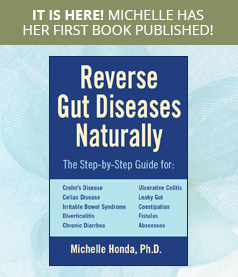

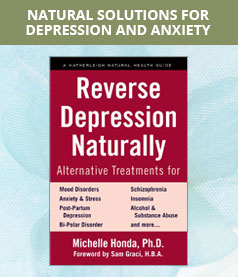
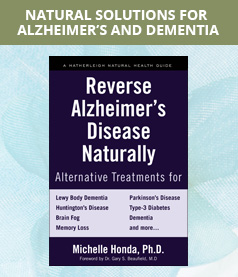
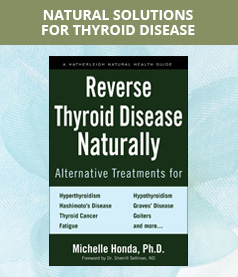

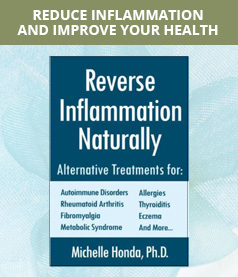
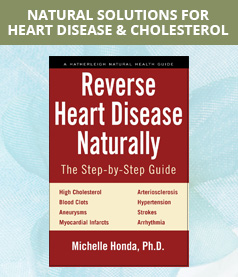
Follow Us!